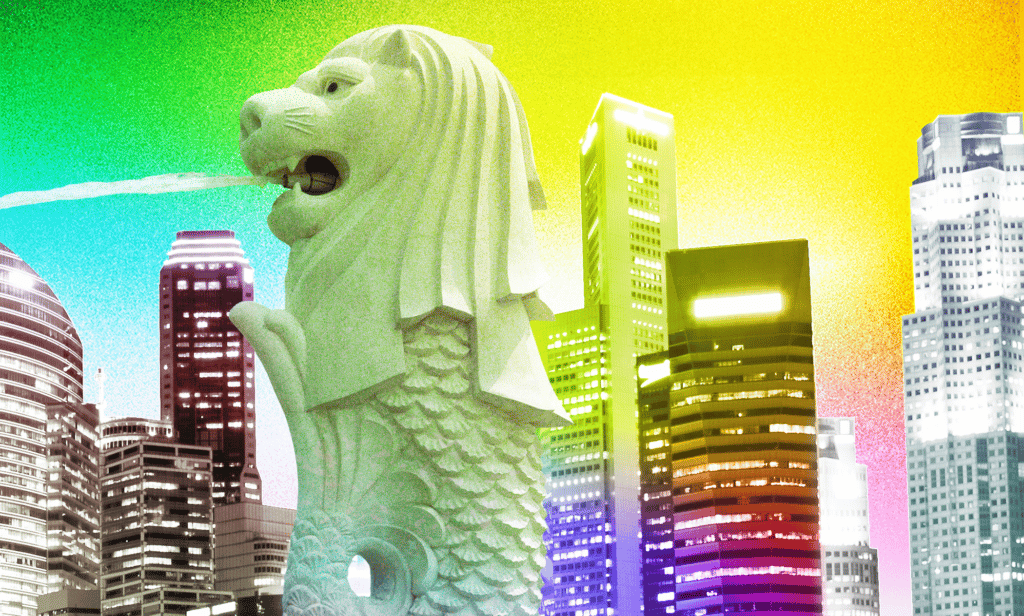Singapore has announced it will repeal a ban on same-sex relations. (Getty/Envato/PinkNews)
Singapore has no plans to lift its ban on same-sex marriage or end its tradition of censoring LGBTQ+ content despite confirming it will decriminalise gay sex.
The country’s LGBTQ+ community rejoiced on Sunday (31 August) after prime minister Lee Hsien announced the government would repeal Section 377A, which criminalises consensual sex between men.
But at the same time, they were reminded the fight for equality is far from over.
More than 20 LGBTQ+ groups called the repeal a “hard-won victory” and a “triumph of love over fear”, but stated that it was “the first step on a long road towards full equality for LGBTQ+ people.
During his speech, prime minister Hsein said that the government would iron-clad the definition of marriage as a union between a man and a woman.
This followed suggestions from religious groups that decriminalising same-sex relations could cause so-called “reverse-discrimination” for those who do not support same-sex marriage.
Hsein’s comments came as a disappointment to the coalition of LGBTQ+ groups, who said the decision will “undermine the secular character of our constitution, codify further discrimination into supreme law and tie the hands of future parliaments”.
After his speech, the Ministry of Communication and Information (MCI) released a statement confirming its hardline approach to LGBTQ+ media would also remain in situ.
LGBTQ+ media will continue to be regulated according to in a statement after the speech as reported by CNA.
It said the repeal of Section 377A did not mean that “we are changing the tone of society”, and that content that “depicts alternative sexualities” and “non-explicit depictions of sexual activity between persons of the same gender” would still be restricted for anyone under 21.
A spokesperson from Singapore’s Infocomm Media Development Authority (IMDA) said the decision was to “protect younger audiences” but let older people “make informed choices”.
It added that it would continue to “take reference from prevailing norms”.

Singapore has been locked in debate for decades on whether Section 377A should be repealed. In 2007, Hsein said it was not being “proactively enforced”.
In his address on Sunday, the prime minister referred to his statement at the time.
“It would have been too divisive to force the issue then,” he said. “Now, 15 years later, attitudes have shifted appreciably. While we remain a broadly conservative society, gay people are now better accepted in Singapore, especially among younger Singaporeans.”
“Private sexual behaviour between consenting adults does not raise any law and order issue,” he added. “There’s no justification to prosecute people for it, nor to make it a crime… The government will repeal Section 377A and decriminalise sex between men.”
Influence of British colonial rule
Singapore inherited Section 377A while under British colonial rule, opting to keep it after gaining its independence in 1965.
Since then, the law has been used to oppress Singapore’s LGBTQ+ community and police any kind of behaviour that isn’t seen as heteronormative.
Téa Braun, chief executive of the Human Dignity Trust, said in a statement: “Section 377A is both archaic and discriminatory. Because of this announcement, gay men can look forward to no longer being presumed criminals, and Singapore has decisively moved past persecuting people on the basis of their sexual orientation.
“This decision is incredibly significant not only for Singapore but for its wider signalling effect across Asia and the world, where millions of people are still criminalised based on their sexual orientation or gender identity.”
